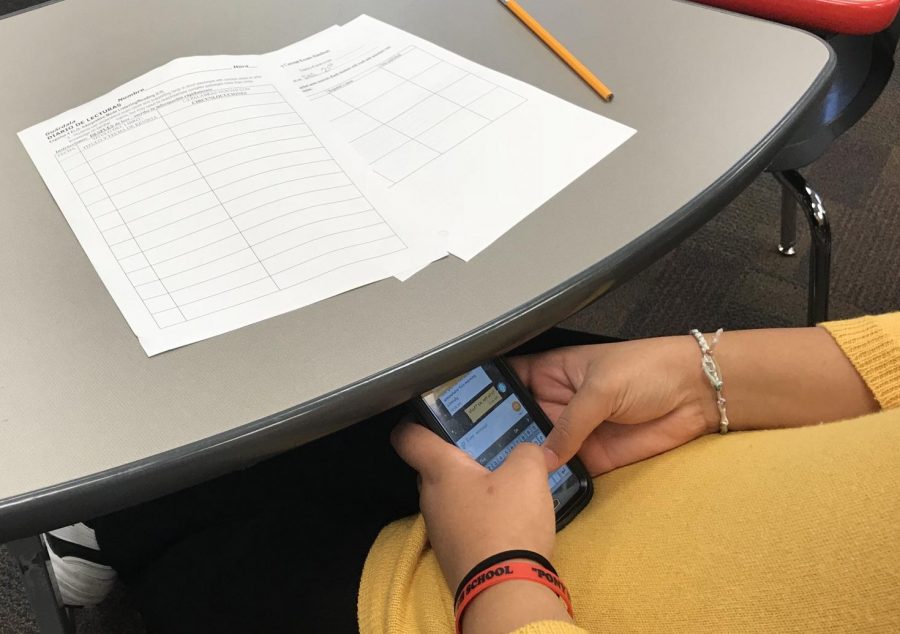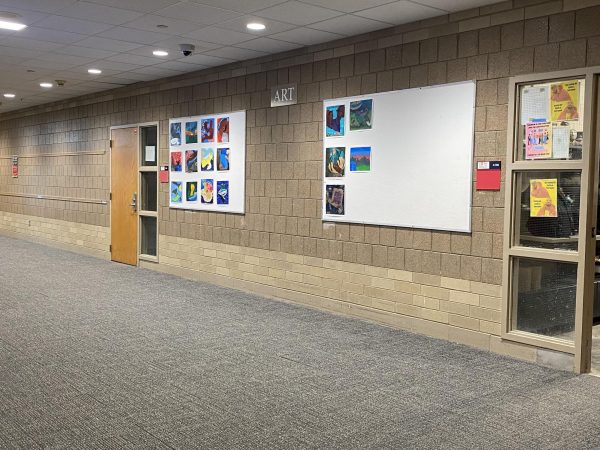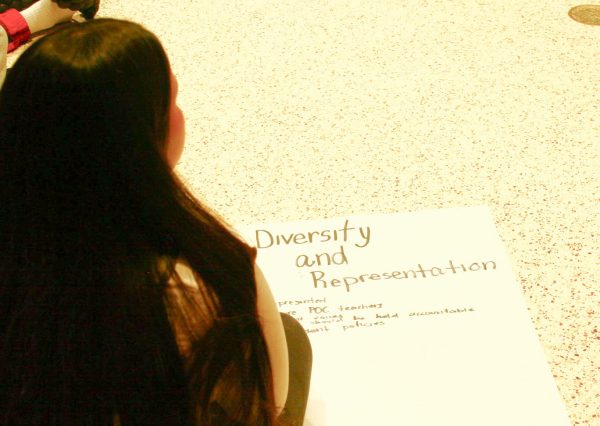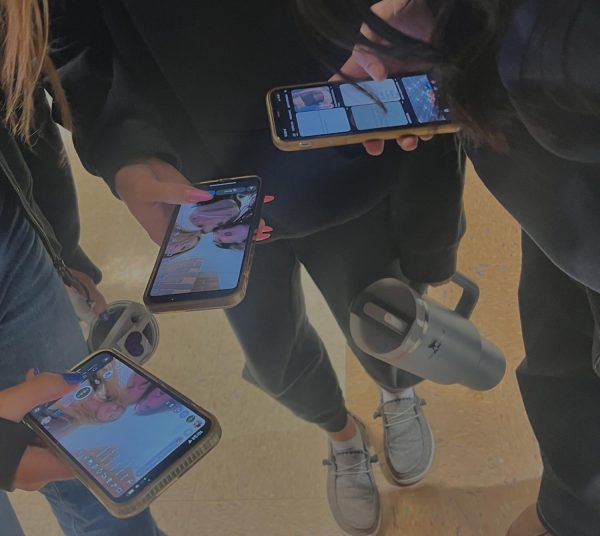New cell phone policy decreases distraction in class
This fall, administration implemented a new cell phone policy to decrease distraction in class.
September 15, 2018
There is a new cell phone policy this year. It was put into place after much careful consideration from a committee of teachers and staff. Assistant Principal Matt Kraft headed the committee last spring. Many students find themselves burnt out after and even during a long, boring lecture. The only reasonable remedy to this problem is reaching for that oh-so-easily accessible phone of theirs. They check one or two messages, maybe “like” their crushes newest Instagram picture and sooner or later, the class is over. They missed the whole lecture. The constant use of technology in the classroom is getting in the way of students’ ability to concentrate in school. That is why we need a cell phone policy.
Teachers and staff members have noticed a rise in cell phone use in the past couple years. Many worry that without proper guidelines, students’ attention span in the classroom will drop even more dramatically than it already has. The new cell phone policy was implemented at the beginning of this school year and it states that students shall not use their cellular devices during academic hours.
Smartphones are an unnecessary distraction in the classroom. According to a study at the Derek Bok Center in Harvard University, students “who text during class frequently took lower quality notes, retained less information, and did worse on tests about the material.”
In our current educational system, if students can not keep up with the lessons, they will dramatically fall behind their peers in more aspects than one. When a student falls behind, their grades, more likely than not, will drop. This causes unnecessary stress and anxiety on the student as they struggle to get their grade back up. However, this is completely avoidable, only if they just put the phone down. With a stricter cell phone policy, like the one that has been put in place this year, students will have harsher punishments if they infringe on the policy that will discourage them from using their phone during class.
When given the opportunity, most students would gladly take notes on the computer rather than hand writing notes according to Kristen Frohlich at The Signal. She also mentions that students have become very dependent on cell phones and laptops in and outside the classroom.
Students spend too much time worrying about their missed notifications during class. They are in a constant state of worry (aptly dubbed, ‘FOMO’ or fear of missing out by the youth who experience it). With a stricter cell phone policy, the phones would be ‘out of sight, out of mind’ and perfectly safe in the teachers’ watchful eye. Without the constant distraction that smartphones bring upon students, they would be able to concentrate during class time and learn.
According to a widespread survey published in The New York Times, many teachers believe that students have a shorter attention span due to the constant, never ending use of technology. Although, this survey is not based in scientific fact, it still should be taken seriously because teachers spend countless hours observing student behavior.
Having a shorter attention span will affect students in and even out of school, especially if a student plans on attending college or joining the workforce after high school. It’s important to stop the progression of the impending attention deficit before it gets worse, or ruins a student’s life forever.
There are students who would argue that the induction of a new, stricter cell phone policy is unfair and will have the opposite effect that it intends. While that it is true that forcing students to put their phones away could cause a hormone-filled, tyrannical uprising, it’s important for students to understand that a cell phone policy is for their own good and will ultimately benefit them in the end. Also, the cell phone policy only applies to academic hours and cellphone use is permitted during passing times, lunches and certain times during class periods.
It’s important to, at least, give the new cell phone policy a chance. If students have problems concerning the cell phone policy, it would be a wonderful idea to send an email or letter to Matt Kraft about the cell phone policy and explain how it has affected their school life. The school’s policies should be a compilation of ideals from the staff and the student body. With student input, the school could come to a cell phone policy compromise that would make everyone happy.













